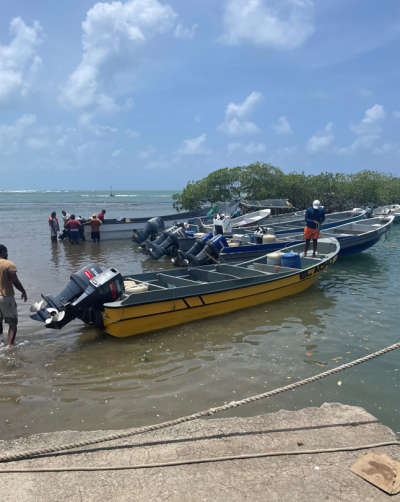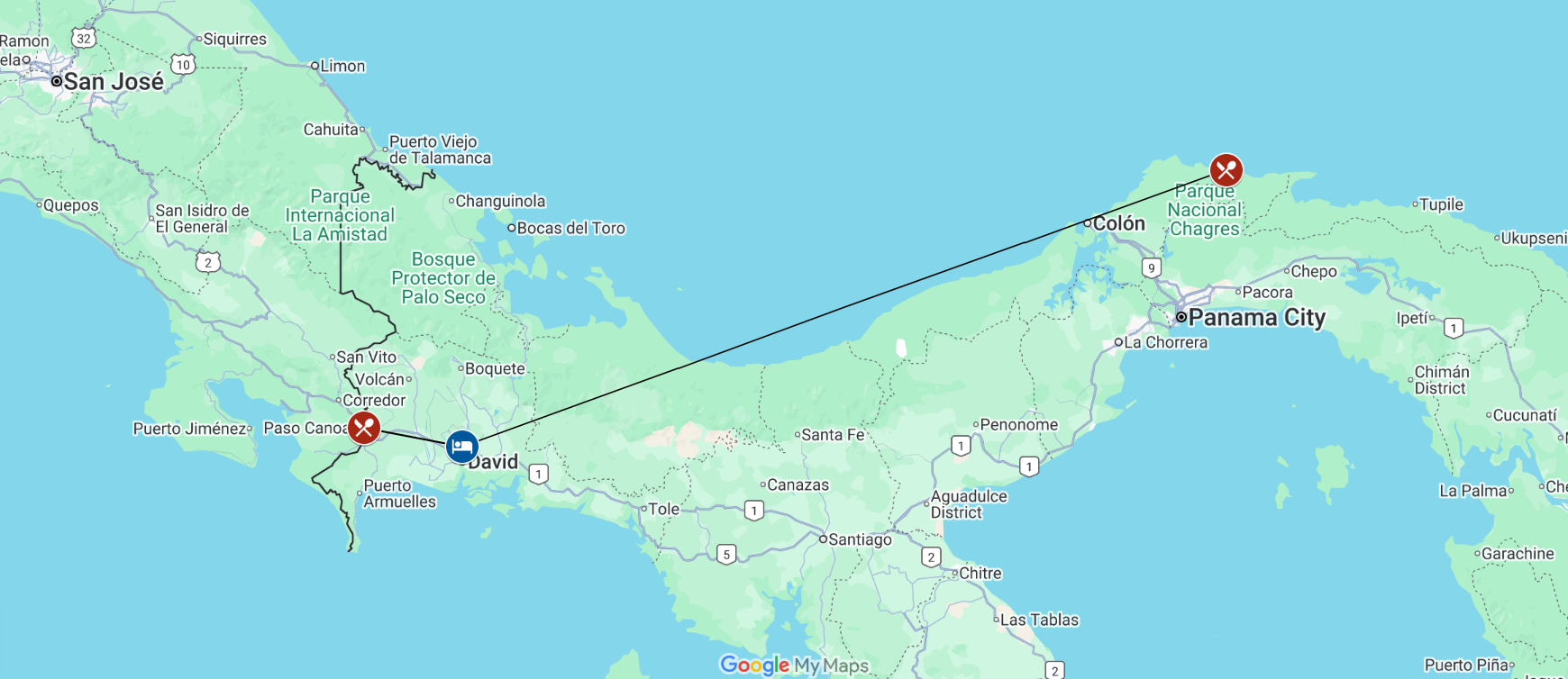
Since the current US administration took power in January, migration trends have shifted dramatically, resulting in a reverse flow southward. 85% of reverse flow migrants cite the new hostile US migration policies as the reason for their return, perceiving that migration to the north is no longer possible.
Reverse migration is often more arduous and treacherous than the journey up north. Migrants live in situations of extreme precarity, vulnerable to kidnapping, extortion, discrimination, and gender-based violence. Some shelters have closed their doors, and smugglers are adapting their business models to focus on movement to the south. Many migrant families remain stranded in shelters across Mexico and Central America, their resources exhausted, as they figure out their next steps.

Since the onslaught of these new challenges, our partners with Red Franciscana para Migrantes-Panamá (RFM) (Franciscan Network for Migrants - Panama) has worked to provide support to migrants along various stops of the migratory route in Panama. The Panamanian government reports that about 10,000 migrants, mostly Venezuelans, have traveled south through Panama since January.
As shown in the map below, their network of support operates at three strategical points. It begins in Paso Canoas, along the Costa Rica/Panama border, where they have served 860+ plates of food to migrants since April, with Quixote Center’s assistance. The RFM team has served people of many nationalities including Ukrainian, Jamaican, Haitian, and Venezuelan, among others.
After Paso Canoas, the most vulnerable migrants can go to David, Chiriquí, where, with Quixote Center support, RFM runs the Hogar de la Medalla Milagrosa shelter that provides psychosocial support, medical care, food, shelter and clothing to over 100 migrants since January. Most of the people at Medalla Milagrosa have medical needs and cannot travel any further.
The last stop in Panama before migrants embark on a treacherous maritime journey to Colombia is Miramar, a small coastal town in the province of Colón. With a population of just 200, Miramar alone does not have the resources to meet the needs of the large influx of migrants arriving daily. In March, the Quixote Center with RFM visited a makeshift shelter where migrants were sleeping on the floor of a dilapidated building before paying smugglers to take them on a three-day boat journey to Colombia. The UN migration agency, IOM, is also there providing occasional interventions, but RFM Panama is the leader in providing crucial support to migrants in Miramar. RFM Panama, together with the local Catholic parish, and with support from the Quixote Center, started a meal program in May, and by mid-June served over 302 plates of food to stranded migrants. Stranded because they had not yet come up with the money for the boat to Colombia.
In addition to providing migrants with essential care, RFM advocates for safe, legal migration pathways and protective government policies. They also work to raise awareness of the crisis both locally and globally, including through direct communication with international organizations such as IOM, Unicef, and in coalition with Red CLAMOR (Latin American and Caribbean Ecclesial Network on Migration, Displacement, Refuge and Human Trafficking).
As RFM reported to us, on June 5th, in coordination with the legal commission and the National Migration Service of Panama, they successfully secured a six-month humanitarian visa extension for migrants still stranded in the country. Additionally, the team participated in a meeting of the Western Roundtable on Migration, where they contributed recommendations to strengthen protections for migrants and uphold their human rights.
RFM Panama held two workshops in collaboration with religious leaders in Panama City and Volcán, Chiriquí, aimed at raising awareness about the realities faced by migrants and refugees. In addition, they have designated a team in the Darién region to monitor the declining migration flow, which has now become a trickle.
US policies hostile to migration show a blatant disregard for the human rights catastrophe unfolding along the migratory route. Quixote Center and RFM Panama will continue to respond with critical humanitarian assistance and political advocacy.
None of this work is possible without your support. On behalf of all those we serve, we thank you for your generosity.



Comments
Shari Soeur (not verified)
This is such important work and sheds much-needed light on the cruelty and danger to innocent people of these mass deportations.
Quixote Center (not verified)
Thank you Shari! We hope to provide critical analysis and information that is lacking in regular media.
Quixote Center (not verified)
Thank you for your comment, Shari!